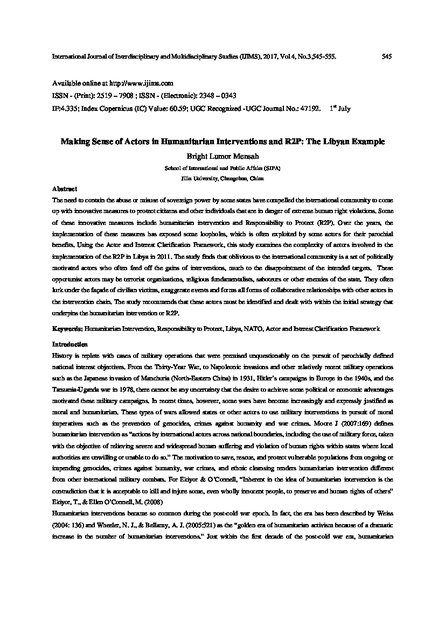
The need to contain the abuse or misuse of sovereign power by some states have compelled the international community to come up with innovative measures to protect citizens and other individuals that are in danger of extreme human right violations. Some of these innovative measures include humanitarian intervention and Responsibility to Protect (R2P). Over the years, the implementation of these measures has exposed some loopholes, which is often exploited by some actors for their parochial benefits. Using the Actor and Interest Clarification Framework, this study examines the complexity of actors involved in the implementation of the R2P in Libya in 2011. The study finds that oblivious to the international community is a set of politically motivated actors who often feed off the gains of interventions, much to the disappointment of the intended targets. These opportunist actors may be terrorist organizations, religious fundamentalists, saboteurs or other enemies of the state. They often lurk under the façade of civilian victims, exaggerate events and forms all forms of collaborative relationships with other actors in the intervention chain. The study recommends that these actors must be identified and dealt with within the initial strategy that underpins the humanitarian intervention or R2P.